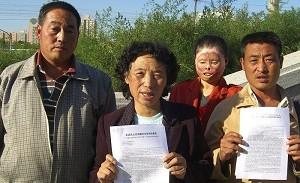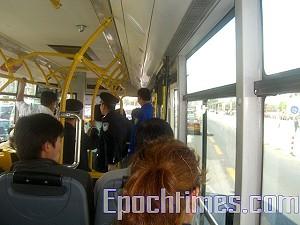CHINA - On the morning of May 11, over 700 demobilized veterans appealed at the General Political Department of the People’s Liberation Army. Police were mobilized to enforce martial law on site.
By 10 a.m. in the morning, an appellant (non-military) passing by the PLA’s General Political Department indicated that there were around 600 to 700 demobilized servicemen present at the time. They wore the PLA’s green uniform, were lined up neatly and sitting on the four-meter-wide street and around it. Some of them were holding signs but there was no shouting of slogans.
The police drew up a security line to stop people from entering the area. An appellant who was forced to make a detour said that when he passed by at around 11a.m., he saw a large crowd of appealing military men spread out in front of the main gate and its surroundings. According to some passersby, there could have been as many as 1,000 military appellants at that time.
On April 11 last year, over 1,000 veterans have gathered here making appeals for inadequate retirement benefits.
Today a local resident said that when more than 1,000 retired servicemen appealed here last year, officials from the General Political Department were still summoning the retired soldiers one by one for negotiations at two o'clock the next morning. Apparently the government did not follow through on the promises it made last year, prompting new demonstrations.
Around noontime these appealing veterans began to eat their packed lunches.





